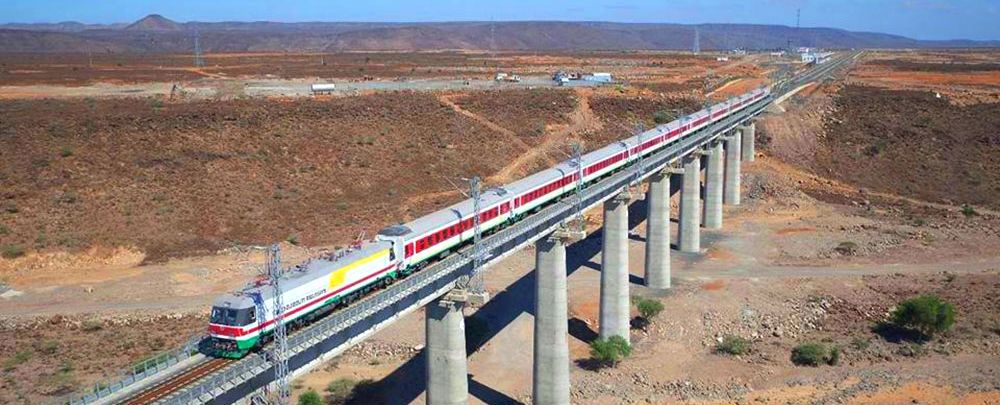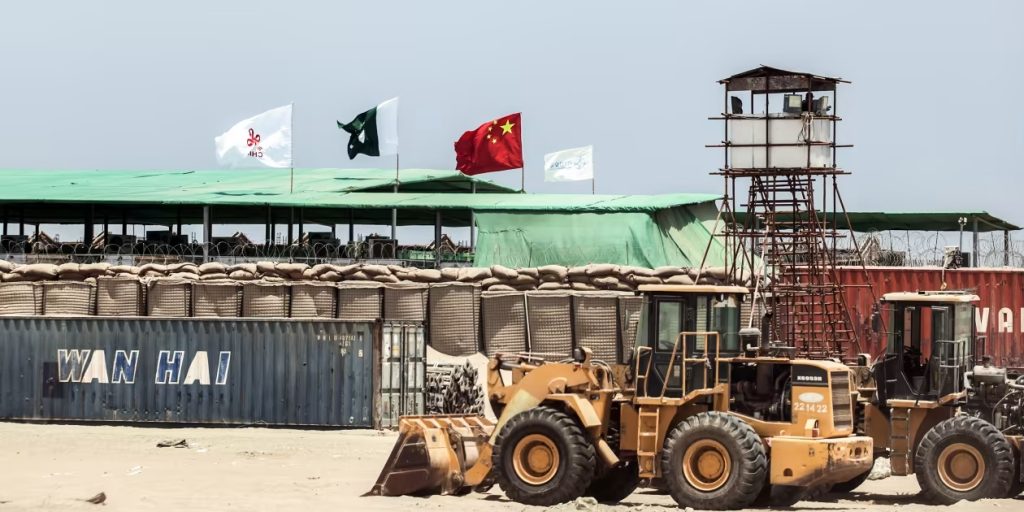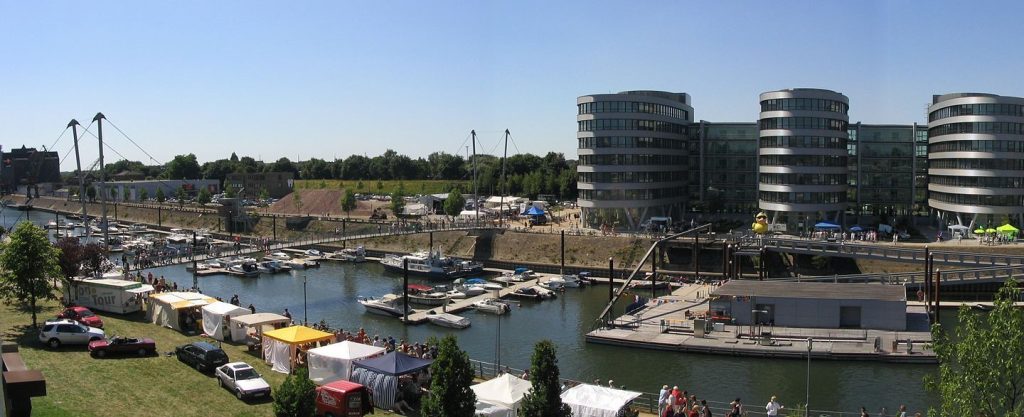The Chinese government defines the Belt and Road Initiative (BRI) in functional terms, supporting any international project with ‘potential’ to become part of the BRI. There is no concrete definition of what kind of cooperative engagement there should be, leading to many possibilities and encouraging interested stakeholders worldwide to justify how their projects can be part of the BRI and thus obtain Chinese investments or loans. For instance, Africa was initially not a major region for the BRI when the idea was coined in 2013 (Chen, 2016). However, narratives from both Chinese and African actors on the importance of the BRI projects for transforming Africa’s future eventually caught the attention of political and economic actors from both sides, who endorsed the idea that the BRI should extend to the African continent. In 2015, China and the African Union signed a Memorandum of Understanding to cooperate on the development of infrastructure projects across the African continent. The Chinese framed these ideas as part of the BRI framework, while their African counterparts framed them under the African Union’s Agenda 2063, which plans to speed up the integration of the African continent through infrastructure projects (Bach, 2016).
Increasingly, studies have explored the constellation of domestic institutions, policy and/or business networks, and the efforts of political and economic actors in African states to link their policy priorities to the BRI. Essentially, they all ask how African actors, governmental or private, are aligning their interests and policy preferences with the BRI. The alignment of interests and policy preferences also occurs among Chinese actors, as well as between African and Chinese actors. This growing body of literature proposes a bottom-up approach to examining the motives, actions, and resources of potential stakeholders in various BRI target countries (e.g., Pan, Clarke, and Loy-Wilson, 2019; Carrai, 2021; Chiyemura, Gambino and Zajontz, 2022). It complements the plethora of literature that has looked at the BRI issue solely from geopolitical perspectives, in the context of China’s rising global ambition and influence. One major caveat of this geopolitical approach is that it tends to leave researchers to equate China’s geopolitical ambition with its actual impact. In reality, there is a discrepancy between China’s ambition and its real capacity to influence the outcomes of BRI projects on the ground (e.g., Pan, Clarke, and Loy-Wilson, 2019; Chen, 2020; Chen, 2022). It is crucial to examine local actors and their agency in mediating and translating the potentials of BRI projects in their own countries. This also applies to various African contexts in which the agency of African actors plays a vital role in initiating and framing cooperation with China to garner Chinese financing and investment. However, African actors might not only be interested in fostering cooperation with the Chinese, but also resisting Chinese influence (Pepa, 2020; Alden and Large, 2018; Mohan and Lampert, 2013).
Chiyemura, Gambino, and Zajontz’s 2022 paper cautions against a reductionist conceptualization of African agency limited to the vague notion of state or political elites. There is in fact a polymorphy of practices through which African actors influence the terms and conditions as well as the design and construction of infrastructure projects. Drawing on extensive field research, their paper shows the variety of African agency through three empirical case studies: the planned Bagamoyo port in Tanzania, Ethiopia’s Adama wind farms, and the port of Lamu in Kenya.
Agency and Structure
Agency does not operate in a structural vacuum. Instead, agency is affected by the structure it operates in and may further induce changes to the structure. Maria Adele Carrai’s (2021) paper compares the regulatory environment and civil society in Kenya and Ethiopia to demonstrate this point. Carrai’s (2021) focus is the adaption of corporate social responsibility (CRS) in BRI projects in these countries. Finding that CRS is implemented differently in these cases, Carrai (2021) concluded that China’s approach is primarily adaptive and does not impose any specific type of governance on BRI host states. This is in line with China’s adherence to the core principles of sovereignty and non-interference. One can conceive the capacity and limit of the local African agencies in the following ways.
First, local actors interpret China’s intention, and then further produce a localized understanding of what the BRI project might mean for their countries and societies (Chen, 2020). Local actors, be they state, private, individual or collective, can be seen as a first filter before China can bring in ideas of BRI cooperation. One can see local actors as playing the role of intercultural communicator. Their interpretation of China’s proposed project and their production of localized understanding will determine whether the idea of the BRI might have a chance to advance further in their countries. For instance, Chiyemura, Gambino and Zajontz’s (2022) paper points out that the Ethiopian political establishment has deemed infrastructural development as a sign of the country’s progress towards modernity. In this context, they have welcomed Chinese cooperation and attempted to take control of the cooperative process in order to ensure that ownership and priorities remain in their hands.
Another example referred to by Chiyemura, Gambino, and Zajontz (2022) is that former president of Tanzania John Magufuli led his government to challenge the China cooperation to which his predecessor had agreed, as well the general win-win narrative embedded in traditional Sino-Africa relations. In provoking critiques of these concepts, his government managed to renegotiate terms with the Chinese side to be more in line with Tanzanian’s interests.
Challenges Ahead
State and political elites’ role in encoding what BRI would mean for their countries are of great importance. However, non-state actors may also contribute to this collective construction and framing of BRI’s meanings. For instance, even scholars can form a kind of epistemic community to either foster or hinder the introduction of BRI into their societies. Scholars such as Ndzendze and Monyae (2019) of the Centre for Africa-China Studies at South Africa’s University of Johannesburg have brainstormed to find synergies between the African Union’s Agenda 2063 and China’s BRI. They believe that some of the objectives of the African-bred 50-year master plan for developing Africa (2013-2063) can be facilitated with the support of BRI projects. This is particularly so in areas of industrialization and construction of infrastructure that can improve intra-continental trade, intra-continental people-to-people exchange, and the African Peace and Security Architecture. Other experts, such as the Ethiopia-based Robert Tama Lisinge (2020), chief of the Energy, Infrastructure and Services Section of the Private Sector Development and Finance Division of the United Nations Economic Commission for Africa, share similar views that BRI can match well with Agenda 2063, as infrastructure development will be a vital component of Africa’s socioeconomic transformation in the future.
Apart from being carriers/transmitters of BRI ideas, local actors decide the level of local participation to realize or reject BRI in their countries. BRI supporters are important because they may bring in resources, useful contacts, and even symbolic help, such as signaling to the government and the public that the idea is worth promoting. Again, local actors might hold various stances on this potential opportunity, ranging from opposition to support. In the process of gathering supporters to their sides, local actors inevitably have to find means to accommodate groups or individuals with different views. When there is sufficient motivation to go ahead, local actors will then need to translate existing rules, regulations, interests, and resources into the realization of the BRI projects. If necessary, old projects can be re-branded as BRI projects to continue their development.
Take the Kenya Standard Gauge Railway (SGR) in Carrai’s (2021) paper for example. The idea of the SGR predates the BRI. Back in 2008, Kenya already had a Northern Corridor Initiative to connect Mombasa and Kampala. In the 2021 Economic Recovery Strategy, railway construction was also emphasized. Interestingly, an independent consultancy report on the Northern Corridor Infrastructure Masterplan and a World Bank cost-benefit analysis both rejected the SGR. The Chinese, by contrast, conducted a separate feasibility study to support the SGR and eventually was able to realize the idea under the BRI framework.
Opposition Forces
Another example of an old project re-branded as a BRI project was the Ethiopian section of the Addis-Ababa-Djibouti Railway (ADR). Ethiopia already had an official plan to construct a national railway network back in 2008. With Chinese cooperation, the idea was materialized in 2016 (Carrai, 2021). In both the Ethiopian and Kenyan cases, the states played vital roles in translating existing rules, interests, and resources into the completion of BRI projects.
However, as stressed before, opposition forces should be considered in analysis too (Pepa, 2020). There have been cases where oppositions were able to stop BRI cooperation. For instance, in 2019, due to a massive campaign led by local Kenyan non-governmental organizations and stakeholders, the Lamu coal-fired power plant that was initially planned to be built by the Chinese had to be stopped. Interestingly, the Lamu project was originally proposed by the Kenyan government to seek financial and technical support from China. But activists have brought the case to court due to concerns about damaging the environment. Kenya’s National Environmental tribunal eventually ruled to stop the construction (Wang, 2019). The Chinese side, subsequently, learned to be sensitive to the local wishes and agreed not to advance the plan.
Opposition is often led by non-state actors that possess various kinds of power in negotiating with the Chinese side. It is not easy to compare state and non-state actors’ power because they are different in nature. State actors’ power in filtering, agenda-setting, prioritizing, endorsing, regulating, and supervising BRI projects can be more formal. Non-state actors’ roles could be more trivial, but they can be of significance too. Carrai’s (2021) paper, for instance, shows the importance of Kenyan civil society in encouraging the Chinese side to take CSR seriously while building the SGR. Gambino (2020) calls for attention to informal everyday interactions between Chinese and local actors. Even local labor can use very trivial means of everyday resistance to negotiate for their rights. All of these contribute to our understanding of African agency and put our understanding of Chinese influence on Africa into a more accurate perspective.




